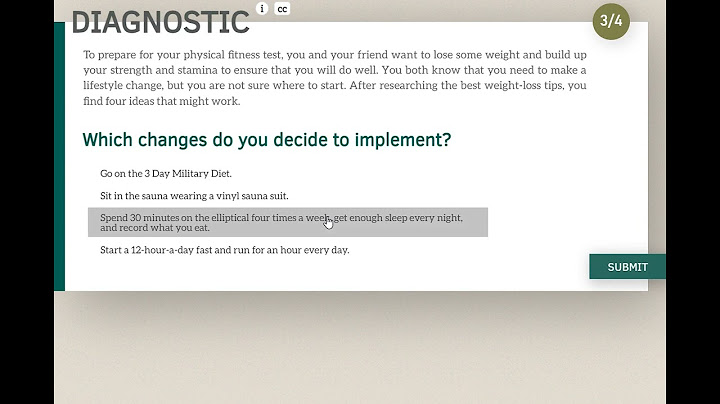Eating is one of the most basic, essential human functions—and a constant desire. If you suddenly don’t have an appetite, if you are repulsed by certain foods, or if you’re struggling to finish a meal, it’s a sign that something is wrong. Show The problem could be as simple as a stomach bug that will pass in a day or two. But a lack of appetite for more than a few days can be a sign of something more serious, like a thyroid problem, cancer, or a mental health issue like stress or depression. Certain medications can also suppress your appetite. The treatment of a poor appetite or loss of appetite depends on the cause. Many mental health issues are treated with talk therapy, lifestyle changes, and medications. But treatment varies if your decreased appetite is caused by conditions such as cancer, digestive issues, or thyroid disease. Pro Tip Eating is one of the most basic human functions. Therefore, loss of appetite rarely occurs for no reason. Many causes of loss of appetite can be treated, especially if diagnosed early, but prolonged loss of appetite can lead to weight loss and malnutrition, as well as a delay in diagnosis. —Dr. Chandra Manuelpillai 3. HypothyroidismSymptoms
Your thyroid gland is located in the back of your neck and produces hormones that affect many functions, including metabolism. Hypothyroidism is an “underactive thyroid,” which means it doesn’t produce enough thyroid hormone. This causes many of your body’s functions to slow down, which can lead to a decreased appetite. Hypothyroidism can happen because of an autoimmune disease; any surgery or radiation treatment to the thyroid gland; certain medications; pregnancy; or consuming too much or too little iodine. Usually, older women with a family history of the disease are at the greatest risk of hypothyroidism. The condition is treated with replacement hormone pills. If untreated, symptoms can worsen and cause very low blood pressure and body temperature and even coma. 4. CancerSymptoms
Loss of appetite is a very common symptom of cancer. It can occur with any type of cancer, but it’s particularly common if you have cancer of the gastrointestinal tract. Some cancers also release hormones that affect the hunger centers in your brain. If you develop symptoms, it’s very important to see your doctor right away. If your symptoms are caused by cancer, the earlier you’re diagnosed and treated, the more successful treatment will be. Although cancer can cause loss of appetite, the treatment of it can also decrease hunger. Many chemotherapy treatments trigger the vomiting centers of the brain or cause damage to your digestive tract, leading to nausea and vomiting. Your oncologist will know which chemotherapy treatments are most likely to cause these symptoms and can prescribe anti-nausea medications. Pro Tip There are a few high-risk people to consider when discussing loss of appetite. The first is the elderly. The second group includes those suffering from psychiatric disorders. The third group is those suffering from eating disorders. —Dr. Manuelpillai 5. Morning sicknessSymptoms
Pregnant women may get morning sickness, causing nausea and vomiting. This can make eating unappealing, and you may find you’re unable to tolerate certain foods that you usually like. Despite its name, morning sickness can occur at any time of the day. It tends to develop in the first trimester, but some pregnant women may have it throughout their pregnancy. You can try to prevent or lessen symptoms by eating bland foods such as crackers throughout the day (particularly when you first wake up) and drinking ginger ale. Over-the-counter therapies—such as ginger, vitamin B-6 supplements, and doxylamine (Unisom)—can also help soothe your symptoms. Or your doctor may prescribe anti-nausea medications such as ondansetron (Zofran), metoclopramide (Reglan), or phenergan. 6. InfectionsSymptoms
Many infections, especially stomach bugs, like rotavirus or norovirus, can make you lose your appetite. These are associated with fever, nausea, vomiting, abdominal cramps and diarrhea. Other infections such as the flu and COVID-19 can also make you lose your appetite, as well as hepatitis and HIV. Most common stomach bugs and the flu go away on their own, but it’s important to drink plenty of fluids to prevent dehydration. Other possible causesA number of conditions may also cause loss of appetite, including:
Dr. Rx As we age, our sense of taste and smell decrease, leading to decreased enjoyment of food. It also becomes harder to shop and/or cook for ourselves. Luckily, many of these can be managed by eating food you enjoy and eating smaller, more frequent meals, as well as eating foods that are high in calories and/or nutrient dense. —Dr. Manuelpillai Why do I feel dizzy and nauseous and loss of appetite?Decreased Appetite, Dizziness, Feeling Faint And Nausea Or Vomiting. Your symptoms and signs are possibly due to an issue with your stomach or intestines. Try to drink plenty of fluids and pay attention to any foods that may be making the symptoms and signs worse.
Why have I lost my appetite and feel sick all the time?Loss of appetite can be related to lowered immune system function, feeling unwell, and having an upset stomach. Medical conditions that can cause a loss of appetite include: digestive conditions, such as irritable bowel syndrome and Crohn's disease. a hormonal condition known as Addison's disease.
Why do I feel nauseous and dizzy and my stomach hurts?Stomach pain and dizziness have a wide range of potential causes, including dehydration, anxiety, and food poisoning. In some cases, they may indicate a more serious condition.
Why do I feel sick dizzy and tired?An infection like a cold or the flu can inflame the vestibular nerve in your inner ear. This nerve sends sensory messages to your brain to keep you upright and balanced. Swelling of the vestibular nerve can cause dizziness and vertigo. You might also feel fatigued.
|

Related Posts
Advertising
LATEST NEWS
Advertising
Populer
Advertising
About

Copyright © 2024 chuyencu Inc.















